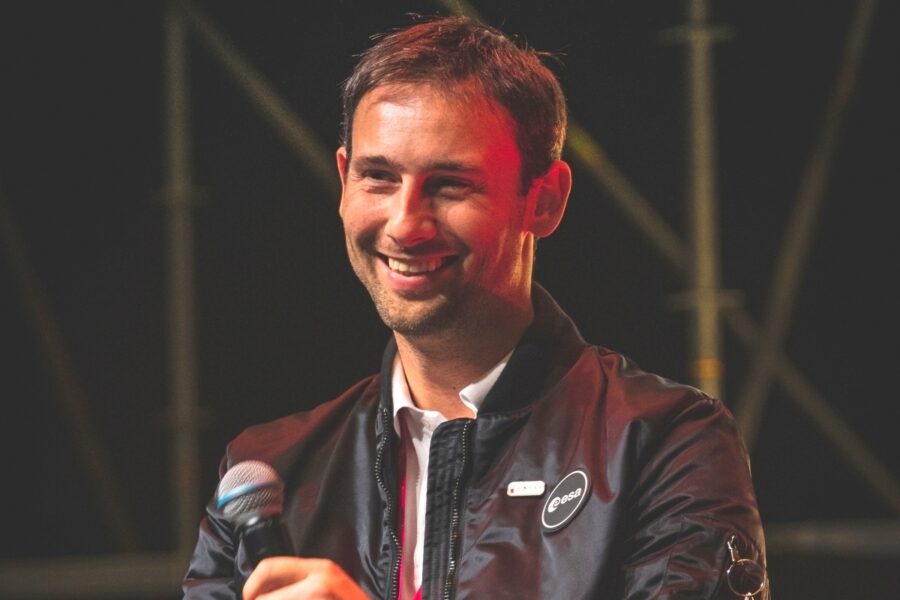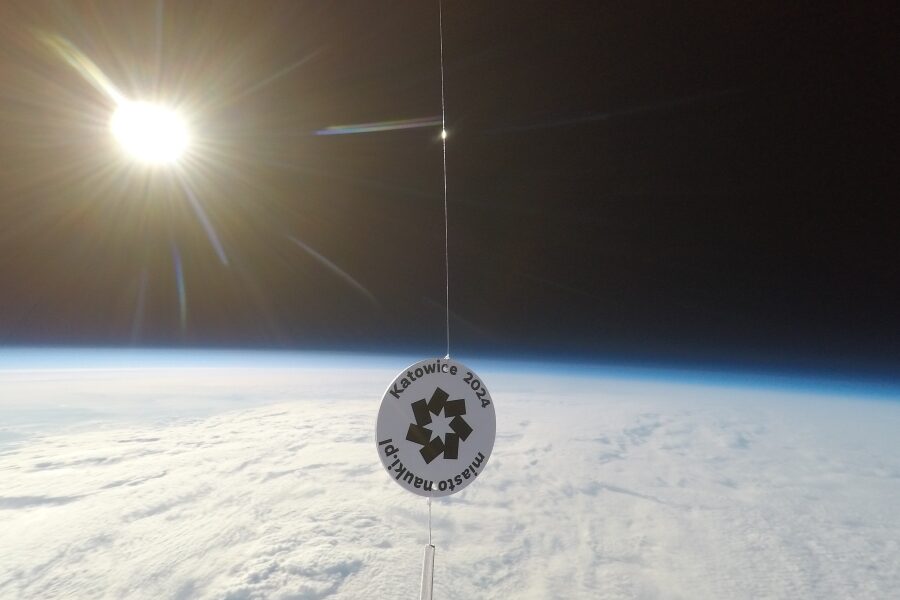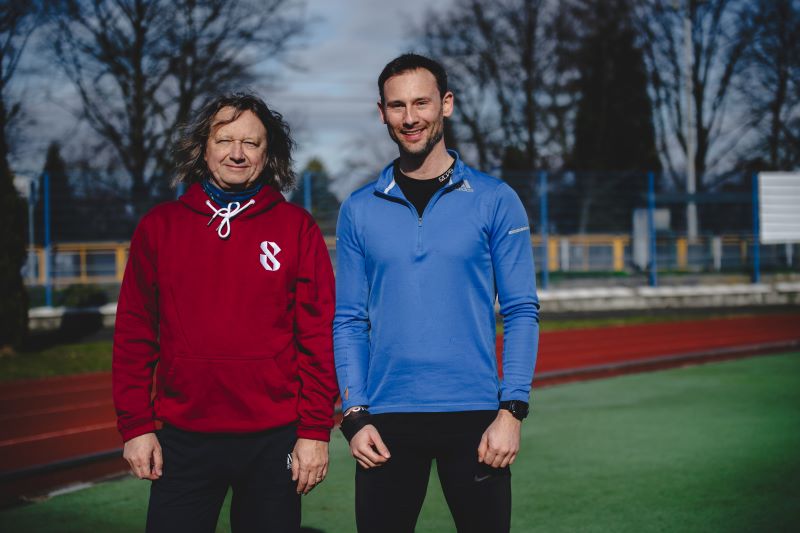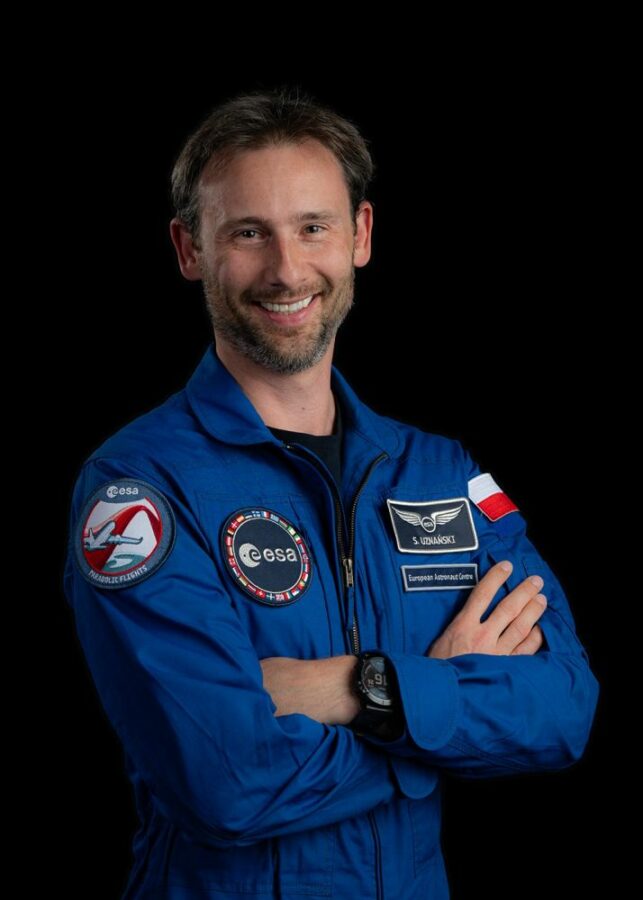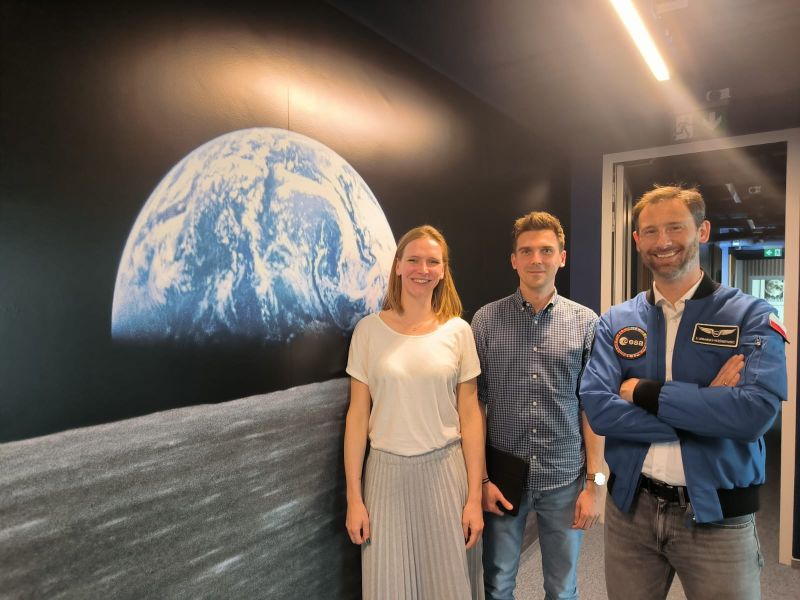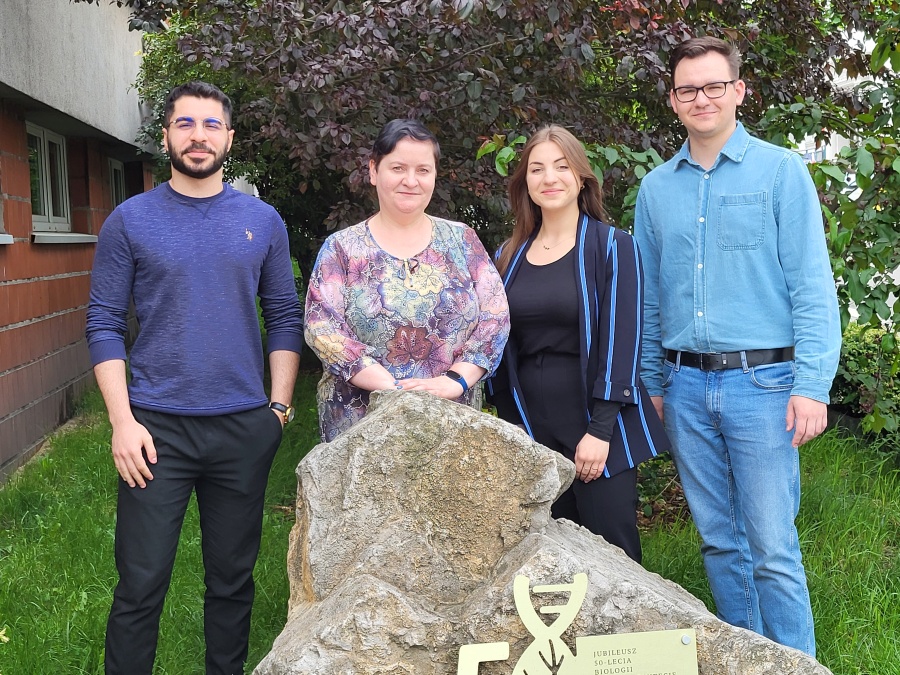IGNIS, the first Polish Mission to the International Space Station, is set to launch on 10 June, and will take Sławosz Uznański-Wiśniewski, PhD Eng. to outer space. He will become the second Polish man in space!
It is also a wonderful day for Polish science as scientists from the University of Silesia are contributing to the research carried out in collaboration with the astronaut and the Polish Space Agency (POLSA).
Sławosz Uznański-Wiśniewski, PhD Eng., has been closely collaborating with the University of Silesia for quite some time. For instance, he was our special guest during the Space Week in the European City of Science Katowice 2024, and our guest during the Silesian Science Festival Katowice.
Therefore, the University of Silesia wants to celebrate this remarkable event in the best way possible – by preparing special activities on Friday, a day before the launch.
Discover the stellar offer of the University of Silesia, suggested events and information related to research and studies at our University.
Photo by Tomasz Kiełkowski
Talks and workshops
We will meet on 6 June 2025 at the lecture hall of the USil Faculty of Humanities located at ul. Uniwersytecka 4. There, from 9 a.m. to 1 p.m., you may enjoy talks and workshops delivered by USil scientists.
Some events require prior registration via dedicated online forms.
SCHEDULE
- 8.55–9.00 a.m. – A welcome speech by Katarzyna Trynda, PhD, Assoc. Prof., Vice-Rector for Student Affairs and Education
- 9.00–10.00 a.m. – A two-part Lecture – Mateusz Paliga, PhD, Assoc. Prof. and Agnieszka Skorupa, PhD (form)
- 10.00–10.30 a.m. – Workshop ‘Explore the Inner Space: How Awareness Helps Tackle Hardships’ – Dagna Kocur, PhD, Assoc. Prof. (form)
- 10.30–11.00 a.m. – ‘AstroMentalHealth – Call with Analogue Astronauts at the LunAres Research Station in Piła’, hosted by Ewelina Zambrzycka-Kościelnicka from the Space Research Centre of the Polish Academy of Sciences, ŚFN Ambassador (form)
- 11.00–11.15 a.m. – break
- 11.15–11.45 a.m. – Talk: ‘Before We Fly to Mars: Can Tardigrades Help Protect Other Organisms in Outer Space’ – Izabela Poprawa, PhD, DSc, Assoc. Prof. (form)
- 11.45 a.m. – 12.15 p.m. – Lecture: ‘Career in the Space Sector’ – Justyna Średzińska (form)
- 12.15–12.30 p.m. – break
- 12.30–1.00 p.m. – Online Meeting: ‘How to Protect Oneself against the Radiation in Space?’ – Anna Fogtman, PhD, from the European Astronaut Centre (EAC) and the European Space Agency (form)
Logo of the European City of Science Katowice 2024 sent to the stratosphere
Sławosz Uznański-Wiśniewski, PhD Eng., was our guest during Space Week organised by the University of Silesia in 2024 | Photo by Wojtek Korpusik
Sławosz Uznański-Wiśniewski, PhD Eng. – the Polish project astronaut of the European Space Agency | Photo by ESA
IGNIS – First Polish Mission to the International Space Station
The launch of the Ax-4 Mission to the International Space Station (ISS) is planned for 10 June 2025. The 4-people mission crew includes: Peggy Whitson (United States, Commander), Shubhanshu Shukla (India, Pilot), Sławosz Uznański-Wiśniewski (Poland, Mission Specialist 1), Tibor Kapu (Hungary, Mission Specialist 2). The Ax-4 will launch from the John F. Kennedy Space Centre, using a SpaceX Falcon 9 rocket to place Dragon spacecraft into low Earth orbit. The astronauts will spend approx. 14 day on the ISS, conducting various scientific experiments and tests of new technologies in the microgravity conditions.
Within the IGNIS Mission, Sławosz Uznański-Wiśniewski, PhD Eng., will conduct 13 experiments designed by Polish companies and universities. The scope of the research will be wide and cover astronauts’ mental health, the microbiome, noise level monitoring on the ISS, new materials and technologies, including the use of artificial intelligence. The Polish astronaut will also carry out two projects designed by scientists from the University of Silesia in Katowice: AstroMentalHealth and Yeast TardigradeGene.
Moreover, the astronaut will also carry out an educational programme. Addressed to primary and secondary school pupils, university students, teachers and educators, the programme features engineering projects, contests, workshops and expert talks.
The mission name—IGNIS—refers to the Latin word for fire, symbolising the energy, creativity and passion that are foundations for the project. The Polish mission is a technological and scientific endeavour that brings benefits not only to our country but the entire world as a whole. Thanks to the involvement of Polish companies and scientific institutions, the experiments will have an impact on many fields of science. It’s also a game-changer for the Polish space industry.
Research and Space Projects of the University of Silesia
Experts from the University of Silesia will carry out two projects out of 13 planned during the IGNIS Mission. Sławosz Uznański-Wiśniewski, PhD Eng., will carry out experiments designed by the team led by Agnieszka Skorupa, PhD (Faculty of Social Sciences) called AstroMentalHealth and the team led by Izabela Poprawa, PhD, DSc, Assoc. Prof. (Faculty of Natural Sciences) called Yeast TardigradeGene.
AstroMentalHealth
The project aims to conduct research aboard the ISS and at the LunAres analogue space habitat in Piła, focusing on the impact of space isolation and the conditions on the station on human mental health and the psychological functioning of astronauts during a short-term space mission. The outcomes may come in handy during the selection and training of future astronauts.
You may find more information about the project in an article by Agnieszka Sikora, PhD ‘Out-of-This-World Experiment by USil Psychologists’, published in University of Silesia Magazine Monthly.
Agnieszka Skorupa and Mateusz Paliga with Sławosz Uznański-Wiśniewski | Photo by: POLSA
Team of researchers of the University of Silesia in Katowice | Photo by A. Chachulska-Żymełka
Yeast TardigradeGene
The aim of the project is to send a new strain of yeast to the International Space Station to test how it performs in microgravity conditions and how it responds to radiation. Yeast strains that prove more resistant than regular yeast to the harsh conditions of space could one day be used as bio factories for food during long-term space missions or at various types of future bases planned on the Moon or planets; they could also serve as a potential source of fuel.
You may find more information about the project in an article by Agnieszka Sikora, PhD ‘The Gene of Space Pirates’, published in University of Silesia Magazine Monthly.
Study at USil!
Do you dream of traveling to space one day? Your journey starts now! It does not matter whether you are interested in natural sciences or humanities, you may contribute to and take part in space exploration missions.
At the University of Silesia, you are sure to find a field that sparks your interest and make your dreams come true!
Here you may find only a bunch of degree programmes you can pursue: Biotechnology, Psychology, Biophysics, Chemistry, Medical Physics, Computer Science, Applied Computer Science, Biomedical Engineering, Mathematics, Mechatronics, Micro and Nanotechnology, Chemical Technology, Data Science and Artificial Intelligence, Materials Science and Engineering, Geography, Physics, Computer Science.






